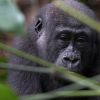A great moment for biodiversity
The COP15 nations adopt a historic agreement and a decision to protect lands and waters.

30 per cent of the world’s lands and waters are to be protected until 2030. Nearly 200 governments pledged to halt the destruction of Earth’s ecosystems after almost two weeks of negotiations at the COP15 world conference on biodiversity which was held in Montreal, Canada. In addition to this they are also aiming to spend more money on the protection of biodiversity. This means, among other things, that richer countries will be providing poorer countries with financial support of around 29 billion dollars per year until 2025.
The document also stressed the role of indigenous peoples and local communities in the worldwide efforts to protect the environment. Numerous observers considered this to be a notable success. The agreement also aims to halve the threats to humans and the environment from pesticides by the year 2030 and to gradually reduce environmentally harmful subsidies.
When the non-legally binding document was passed the assembly erupted in cheers. The conference was officially scheduled to end on Sunday, but it was extended until Monday. The organizers, scientists and representatives of NGOs had been working full tilt right up to the end to ensure that the assembly would be able to pass a ground-breaking global agreement for species conservation.
German commitment
The rapid loss of biodiversity, the extinction of species, is presenting a greatly increasing threat to the basic needs of human life. That’s why nature reserves are so important. They are utilized sustainably, they protect nature and give it a chance to regenerate. This applies to conservation areas around the world, not just in the tropics. Germany will be supporting the “30x30" goal from 2025 onwards with 1.5 billion dollars per year. That’s twice as much as before. Germany is also highly committed to biodiversity on an international scale. The most striking example is the Legacy Landscapes Fund (LLF), which was founded on a German initiative and supports the funding of protected areas around the globe.
In the end a surprisingly good framework.
Florian Titze from the environmental organization WWF Germany said that the agreement is “by no means perfect, but in the end a surprisingly good framework.” A variety of nature conservation organizations criticized that too few binding commitments had been made, and that the agreement didn’t go far enough. Some poorer countries complained that the financial aid was not enough to fulfil the tasks they are facing.
The Fifteenth Conference of the Parties (COP 15) to the United Nations Convention on Biological Diversity (CBD) was originally scheduled for 2020 in China, but was then postponed and divided up because of the ongoing pandemic. The first segment of negotiations took place mainly online, in Kunming, China, in October 2020. (Including information from dpa.)


